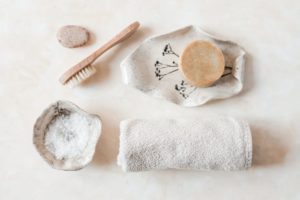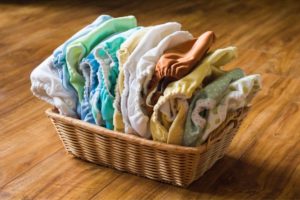Learning how to reduce water waste, requires you first to look at where your waste is occurring. Americans have woken up to our increasing water waste according to a recent survey where only 9% of respondents were not concerned about water waste.
It’s a topic that is coming to the forefront as we become more aware than ever about our environmental footprint, so we’re going to explore how to conserve water the easy way.
First of all, we’re going to lay down 10 important facts that you need to know about water waste in the USA. Let’s dive right in.
How to Reduce Water Waste by Identifying the Problem
You might know that we’re wasting water collectively as a nation. However, you might be less aware how you’re losing water as a household.
These facts about wasting water could get you thinking about small changes you could make today to stop losing water and money unnecessarily.
Water Waste FAQ
Here are some frequently asked questions about water waste that can help you move in the right direction.
Q: How much water does the average American use?
A: The average American uses over 88 gallons of water per day.
Does that figure surprise you?
Think about all the ways you use water on a daily basis. Now how much of that is going unused straight down the drain? At a closer look, you and your family could be losing over 9,400 gallons of wastewater every year.
That makes it crucial to find the source of your use and waste. Then you may learn how to make a change.
Q: How much of our daily water use is wasted?
A: Around 95% of the water that enters our home is lost down the drain.
Shockingly we really aren’t utilizing the water that comes into our homes and the majority of it is wasted water. Your shower, dishwasher, and even maybe your leaking faucet is washing valuable water and money down the drain.
Q: I don’t want to hire a plumber. Can a leaky faucet really cause very much water waste?
A: Your leaky faucet is wasting up to 27,000 gallons a year.
That drip you keep putting off getting repaired? If your faucet is dripping just once a second then you are losing a whopping 27,000 gallons of water from your home each year.
We might not look at a dripping tap the same way ever again either.
Q: What does water cost in the United States?
A: The average American family spends more than $1000 annually on water costs.
Even more interestingly, just by installing water-efficient appliances and fixtures they could save themselves around $380. Saving the planet and their hard-earned money.
Take a look at your own water costs. Are they in line with the average and could you be saving yourself almost $400 per year? We know there must be something better you could be spending that money on.
Q: What is an example of water waste that’s easy to prevent?
A: Running water while brushing your teeth is wasting around 4 gallons of water each time.
That figure of 4 gallons might not seem huge but let’s do the math here. If you brush your teeth twice a day then you could be losing almost 3000 gallons of water per year.
If everyone in the USA left the tap running while they brushed their teeth then we would all be wasting around 955.3 million gallons of water per year.
You might think your water usage is just a drop in the ocean but if we all made this simple change then we’d save almost a billion gallons of water a year.
Q: Has water waste gotten worse or better with the technology boom?
A: Unfortunately, no. Americans now use 127% more water than we did in 1950.
You can see the facts here and notice how water trends have influenced the use of water after conservation practices and yet still our own home supplies have continued to rise.
We keep using more and more water and have become used to using larger quantities than we ever did in the fifties. Along with a growing population, it’s not surprising that our national water usage has exploded.
Q: How important is household maintenance to help conserve water?
A: Preventative maintenance is a big deal. Nearly 900 billion gallons of water are lost annually nationwide- just through household leaks alone.
Does that seem crazy to you? That much water could supply 11 million homes if we look at the average usage of American homes. Just through fixing your leaking pipes and fixtures.
Q: I’ve heard showers are less wasteful than taking a bath. Is this true?
A: It definitely can be. Changing your shower head could save enough water for 88 loads of laundry.
Yes, that’s right. Just by changing to a more efficient showerhead you could save yourself 2700 gallons of water per year. As well as saving wasted water you could also reduce your home electricity and water bill by around $70.
This water conservation project is starting to sound a lot like a budgeting project too. Bonus!
Q: What about toilets? My home is old, the toilets are in OK shape, but should I replace them to help save water on each flush?
A: Older toilets can use up to 3 times as much water as new toilets.
It might seem unusual but older toilet systems use more water in the flushing process, almost 3 times as much as the newer systems in some cases.
Q: Who uses the most water in the United States?
A: California uses more water than any other state.
That’s not down to residents’ personal use of water but down to our agricultural use of water. Half of all produce sold in the US is from California and a huge 80% of California’s water supply is devoted to agricultural use.
Water reduction on a state or industrial scale might not be within your control but there are easy, practical changes you can start making today to reduce your water waste.
Remember, it might feel like each change might not make a huge difference but if we all start making these small changes then the collective impact will be overwhelming.
Preventing Water Waste: 10 Tips on How to Reduce Waste at Home
Now you know how you might be wasting water, and why it is so important to conserve water. So how do you reduce water waste at home? Here are 10 easy tips in integrate into your home life and routine.
1. Install Water-Efficient Appliances, Fixtures, and Faucets

So we touched on this earlier but as well as saving yourself hundreds of dollars in water costs you might also save up to 100,000 gallons of water per year if you are a family of four.
2. Turn off the Tap!

Think about how much water you’re losing while brushing your teeth, and let’s quickly add shaving, and washing your face to that list. Start turning off the water today and you’ll start saving gallons of water per day.
Try a quick experiment by plugging the sink while you do any of these activities and you’ll quickly see how much water you’re consuming.
3. Fix Leaks

Find all those leaky faucets, dripping pipes and any leaks you can think of. That dripping tap has to go since we found out just how much water it is costing you.
It’s time for some DIY or to call in your local handyman but do it sooner rather than later to start conserving your water supply.
4. Only Use the Dishwasher When It Is Full

We’ve all been guilty of using the dishwasher when it’s not been necessary but it’s time to stop right now. Your dishwasher uses the same amount of water whether it’s full or not, so stop with the half loads and wait till your dishwasher is at maximum capacity before running a wash.
Interestingly, your dishwasher uses less water than you washing all of your dishes in the sink. However, still be careful to not be wasting water with unnecessary loads.
5. Let Your Laundry Pile Up

Same as with your dishwasher, make sure you wait until you have a full load for the washing machine. This will help you save hundreds if not thousands of gallons of water in the long run.
You can also adjust the water cycle if you are running a less than full cycle but less time spent on laundry can never be a bad thing in our books.
6. Cut down Your Time in the Shower

If you’re a fan of singing in the shower, it might be time to cut down the number of songs in your repertoire. If you’re guilty of longer showers then just try to cut down to conserve water. Aim for 10-15 minute showers to save water and to speed up your morning routine.
7. Think Twice Before Flushing

Hear us out. Obviously, there are times when you need to flush but could you be wasting unnecessary water? Flushing tissues for example? Or, maybe you could consider the phrase “if it’s yellow let it mellow” for a new take on flushing only when it’s absolutely required.
8. Re-Use Your Cooking Water

If you need to boil water in the kitchen for your vegetables or pasta, then consider saving the water and allowing it to cool down. Once your water is cooled it can be used to water plants instead of just being thrown away.
You can also use leftover ice at the bottom of your glass in the same way, watering your houseplants instead of just washing it down the sink. Find out more water usage tricks here.
9. Replace Your Toilet or Try This Trick

You might not be in the position to replace your toilet but if you have an older toilet, you might be able to reduce your water consumption with this simple trick.
Fill a half-gallon container with water and place it in the water tank of your toilet system. This will save you half a gallon with each flush.
10. Don’t Run the Hose While You Wash Your Car

Simply fill a bucket with soapy water and use a sponge to scrub the car down. then, instead of hosing down the care just refill the bucket with clean water and use this. You could save a lot of money and water just by doing this.
Apply the same thinking to watering your garden plants. You could even start to use rainwater for both of these household tasks.
No Planet B
Are you ready to put these practical tips into action and start saving water, money and time today? Learning how to reduce water waste was only the first step. You alone can make a huge difference, even by just implementing a few of these simple changes into your daily routine.
If you enjoyed this article you might like to learn about how living a zero-waste lifestyle can further impact the world we live in.
[line]




